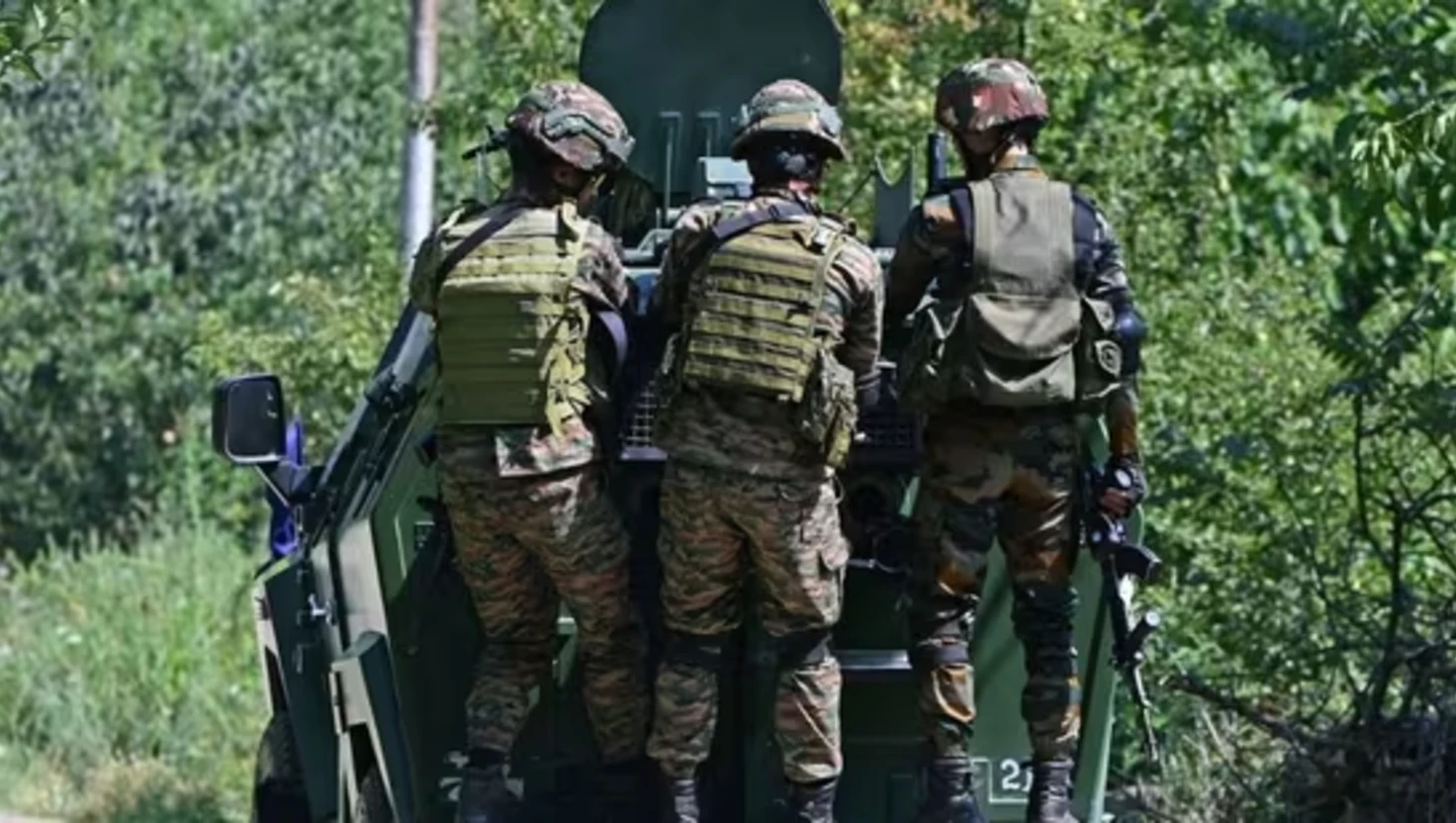Mastermind of Pahalgam Attack Killed in Jammu and Kashmir Operation

Suleiman Shah, Pahalgam mastermind, among 3 killed in Operation Mahadev
Indian security forces eliminate Suleiman Shah, mastermind of the Pahalgam attack, during a coordinated operation in Jammu and Kashmir.
Indian security forces have successfully neutralised three terrorists, including a key figure believed to be responsible for the Pahalgam attack earlier this year. This operation, known as 'Operation Mahadev,' took place in the Lidwas area near Harwan, on the periphery of Srinagar, Jammu and Kashmir.
Details of the Operation
The joint operation involved personnel from the Indian Army, specifically the 24 Rashtriya Rifles and the 4 Para unit, along with the Jammu and Kashmir Police. The action commenced at approximately 11 am, following actionable intelligence and technical surveillance that indicated terrorist activity in the region.
One of the deceased terrorists has been identified as Suleiman Shah, who is alleged to be the mastermind behind the Pahalgam terror attack that occurred on 22 April. However, the formal identification process is ongoing, according to Inspector General of Police (Kashmir Zone), Vidhi Kumar Birdi.
Context of the Pahalgam Attack
The Pahalgam attack, a significant incident in recent months, raised concerns over security in the region. The attack reportedly resulted in several fatalities, propelling security forces to intensify their efforts to counteract terrorist threats.
Additional Findings
During the encounter, security forces recovered a substantial cache of weaponry. This included an M4 carbine and multiple AK rifles, suggesting that the terrorists may have been preparing for further violence. Officials have remarked that this discovery supports the notion that the group had intentions beyond the recent attacks.
Surveillance and Coordination
The operation was initiated based on intelligence regarding a device similar to those employed during the Pahalgam incident. Officials, as reported by the Press Trust of India (PTI), indicated that drone surveillance technology was also utilised to monitor the difficult forested terrain near Dachigam National Park, an area known for its biodiversity and strategic significance.
Broader Implications
Operation Mahadev is part of a larger initiative aimed at dismantling sleeper cells and uprooting terrorist elements that have infiltrated the Kashmir valley. The security forces continue to escalate their counter-terrorism strategies to ensure the safety and stability of the region. A source in the security establishment noted, 'We remain committed to neutralising threats and maintaining peace within the area.'
With the ongoing tension in Kashmir, operations like this highlight the persistent security challenges and the strategic responses undertaken by Indian security forces. The broader implications of these operations will likely impact future security policies and the overall stability in Jammu and Kashmir.

'Very much' remind me of India-Pak conflict: Trump mediates Thai-Cambodia ceasefire
Donald Trump calls for a ceasefire between Thailand and Cambodia, drawing parallels to the India-Pakistan conflict amid rising violence.
| 2025-07-27

India and UK Sign Landmark Free Trade Agreement: Key Impacts
Union Minister Piyush Goyal announces India-UK Free Trade Agreement, promising significant benefits for various sectors and duty-free exports.
| 2025-07-27

India's Shubman Gill and KL Rahul Set New Record in Fourth Test
Shubman Gill and KL Rahul break a longstanding 48-year record, uniting to save India in the fourth Test against England with impressive partnerships.
| 2025-07-27

Indian Stock Markets Decline for Second Consecutive Day
The BSE Sensex drops 721 points amid investor concerns and global trends.
| 2025-07-26

Future Rate Cuts by RBI Depend on Growth and Inflation Outlook
Reserve Bank of India Governor Sanjay Malhotra highlights the importance of economic forecasts over current data for future monetary policy.
| 2025-07-26




